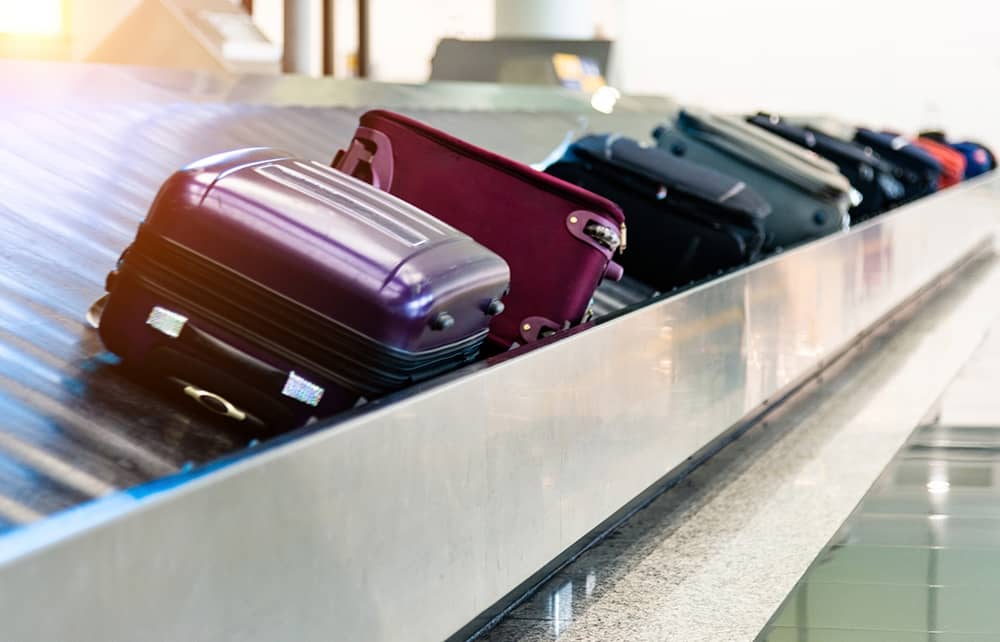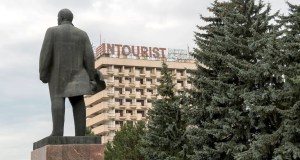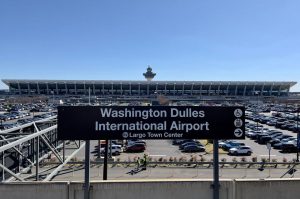On my 2 p.m. arrival for a week-long work trip to South Africa two weeks ago, an immigration agent flapped my passport while inquiring as to the purpose of my visit. “To appear in the Franschhoek Literary Festival” clearly meant nothing to this woman, but hey, lit fests aren’t exactly Woodstock. I only grew, shall we say, concerned when she announced that because my passport lacked two sequential completely clean pages, she was denying me entry to the country.
“You’re kidding me,” I said — quietly; I didn’t shout. Yet this reflex expression of disbelief was all it would take for the entire team of Cape Town’s gatekeepers to blackball me as a reprobate with a bad attitude.
“You think I am joking you?” the official said indignantly. “I strike you as an unserious person, who tells you things just for making fun?” This huffing went on for some time, though it was amazing I could hear her from that high horse.
Pointing out multiple pages with plenty space for their small visa stamp only made matters worse. I was ushered to a chair on the sidelines while the hall emptied. By 3 p.m., another female official with long braided hair extensions informed me snippily that I was now booked on another twelve-hour flight back to London at 7 p.m. I could appeal to the US embassy for a new passport if I liked.
“But wouldn’t the embassy be in Johannesburg?” I submitted meekly.
At this intolerable impertinence, the official threw up her hands exclaiming: “It is true, you are impossible!” Hair extensions flying, she flounced away. Clearly anything out of my mouth down to “have a nice day” would only dig my grave deeper. (My jazz drummer husband claims my main problem is not having “a compliant vibe.”)
Every modern adventure requires a techno-meltdown. I’d turned off my sad 2014 iPhone before takeoff, but mustn’t have swiped fully across, because the battery was kaput, and the phone wouldn’t turn on. Connecting my tablet to the free airport WiFi involved the usual doom loop: the iPad could not be emailed the confirmation code if it wasn’t online to begin with. Meanwhile, my publicist awaited at baggage claim, doubtless frantic because one of the festival’s headline authors had neither communicated nor shown up. None of the officials ignoring me had any interest in helping me contact the outside world. Only thanks to a kindly British Airways agent did I finally send my publicist an SOS. Gears began to grind.
It took hours, one of which I wasted completing an application for an emergency passport, as advised by the Cape Town consulate, only for said consulate to insist that I had to apply in person with passport photos, form printout, passport and cash — another doom loop. All impossible from the wrong side of immigration. My sole hope lay in political string-pulling by the honchos who ran this upmarket festival, wheel-greasing unavailable to most travelers. To my embarrassment, I later learned that getting immigration to relent had entailed the urgent intercession of more than a dozen influencers — the real kind.
Finally I was led before the towering Afrikaner in charge, obviously irked that higher powers had intervened. The other officials had treated me throughout like a criminal; this guy treated me like a naughty little girl. I was allowed in the country only on the condition that I acquired an emergency passport (since the unnecessary document served no other purpose, levying a punitively time-consuming ordeal was obviously the intent). Trying to sound eager to obey, I said in my most subservient voice: “Yes, I’ve already filled out the application online.”
“The staff said you were rude!” he boomed. “They are right, you are rude, rude, rude!”
Go figure.
I came within a hair’s breadth of being sent back to Heathrow for an insensible infraction. South Africa learned bureaucracy from the Brits, and like most of the continent has embraced picayune i-dotting with a vengeance. This incident exhibited three classic British traits: pettiness, obsession with rules for the rules’ sake and looking through the wrong end of the telescope. Beyond the crack-high of exercising capricious authority, barring my admission would have accomplished nothing, while appreciably damaging one of the country’s major cultural events. Already out thousands for my airfare, the festival would have had to refund hundreds of tickets to my three appearances. Big win.
To an extent, this experience was typically South African. Given the country’s traumatic history and all that straining to take offense, it’s hard to resist the impression that race was a factor. One more uppity Karen had to be taught that white folks were no longer in charge. Perhaps we shouldn’t blame black South Africans for taking revenge where they can, but twenty-eight years into majority rule, I did.
Otherwise, fickle pettifoggery and a demand for cowering, docile obsequiousness are common to security and immigration in airports everywhere. In Franschhoek, my tale of woe elicited others, such as being held in detention at JFK for twelve hours because an Irish passport didn’t have a barcode. As my short story “The Chapstick” observes, airport officials are “deputized with the kind of petty power that’s especially horrifying because it isn’t really petty. They can make you miss your own wedding. They can keep you from being present at the birth of your grandchildren. They can guarantee that you won’t see your father one last time before he dies.”
The lesson? Maybe “don’t visit South Africa,” although once I had been none too graciously allowed in, the wine, food and landscape were great; all the non-immigration people were great, too. Maybe “always travel with a practically blank passport,” which – now that passport agencies takes months to process applications (if ever) – is hard to arrange.
Or maybe “don’t fly anywhere.” But had I stayed home, my lovely publicist would never have seized on our meme of the week, which grew more delectably subversive with repetition: “You’re kidding me.”
This article was originally published in The Spectator’s UK magazine. Subscribe to the World edition here.


















